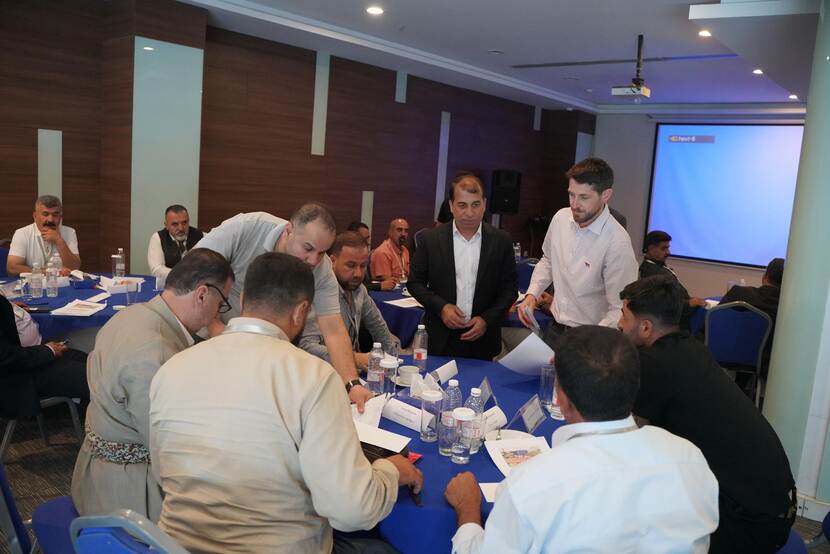Value chain development in Kurdish Region of Iraq
The protected horticulture sector in Sulaymaniyah Governorate, in the Kurdistan Region of Iraq, has experienced remarkable growth over the past 15 years. In 2007, there were no greenhouses in the Bazian valley near Sulaymaniyah city. As of 2024, conservative estimates of the number of plastic tunnel houses in the valley range from 12,000 to 14,000. This explosive growth has been driven by demand from large consumer markets in Federal Iraq, especially for summer production of cucumber.

The Bazian valley has developed into a protected horticulture cluster, creating widespread employment, economic opportunity, and substituting for imported products. Despite a large growth in production, the value chain post-farm has lagged behind these developments.
There is very high price volatility which is a major concern for producers. Grading, packaging, transport, and cool chain processes needs further developments. There is a lack of trust in the food safety of Bazian’s products with the customers and consumers. Furthermore, value chains are lengthy. Effective collaboration between farmers themselves, but also between farmers and other stakeholders in the value chain, is essential for effective value chains.
The current issues result in sub-optimal quality produce to the market and a less competitive position compared to imported goods.

Analysis and assessments
The Consulate General of the Kingdom of the Netherlands in Erbil, and the Netherlands Enterprise Agency (RVO), are working towards addressing some of these issues, to promote economic development and food security in Iraq. In July 2024, HollandDoor Cooperative, in partnership with Erbil-based Snoxell Agribusiness Consulting, were commissioned to undertake a value chains analysis and needs assessment in the Sulaymaniyah horticulture sector. Based upon these assessments, recommendations for a horticultural value chain development project will be made.
In August 2024, the team conducted more than 45 interviews with value chain actors in Sulaymaniyah, Bazian, and Erbil. This culminated with a participatory workshop on the 22nd August in Sulaymaniyah, where 24 value chain actors helped prioritise bottlenecks and opportunities for intervention.

Overcoming bottlenecks in the sector
There is a remarkable amount of enthusiasm, expertise, and capital in the protected horticulture value chain in Sulaymaniyah. The HollandDoor team is currently working on the recommendations that could assist these actors to overcome the significant bottlenecks in the sector. The results will include improved profitability down the chain, reduced food waste, and improved food safety.
RVO and the Consulate General of the Kingdom of the Netherlands in Erbil will use the findings and recommendations to take further action. Follow-up activities are expected to assist the horticulture sector in overcoming significant bottlenecks, enhancing the entire value chain.
More information
For more information about the findings and the horticulture sector, you can reach out to the Netherlands Agricultural Network team in Erbil (erb-lvvn@minbuza.nl).